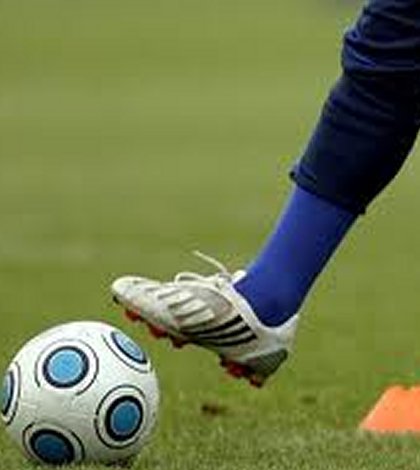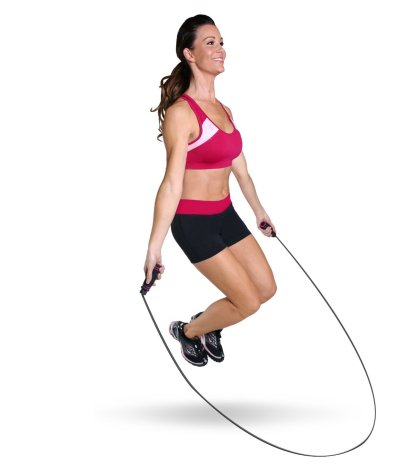If you are just starting to play football, or interested in trying out for a team, then you need to start training in order to handle the rigors of this sport. Football training for beginners can be difficult, but with a few simple tips you can be on your way to an effective and safe training program for the upcoming season.
1. Do Your Research
Football is known for being extremely challenging and demanding on your body. With this in mind, take the time to read up on typical football training so you fully understand what training for this sport entails. Football players are prone to injury, making it important for players to know how to avoid injuries with proper training and conditioning.
2. Talk to Your Coaches
Depending on the team you are playing for, different coaches will have different expectations of their players. Before you start a vigorous training program, make sure you talk to your coaches about what they expect from you while you train. They may want you to get bigger, leaner, faster or stronger. Make sure you are clear on their expectations so you can set the right training goals.
3. Creating Your Training Goals
Once you have done your research and talked to your coaches, you will want to create your personal training goals. Remember, effective goals should be specific, not general. Don’t just set a goal of ‘getting faster,’ set a specific goal of how much faster you want to be. Instead of just ‘getting bigger’ set a goal of gaining a certain amount of weight in healthy muscle. This will help you better track your progress during training.
4. Buy the Right Shoes
The right training gear is essential to your success, particularly when it comes to your shoes. You will need stable and durable cross training shoes that will work for both conditioning and weight lifting. Your shoes should have plenty of support not only in the sole but along the ankles, to prevent injury. Fortunately, you can buy sports accessories online and see a collection of different shoes designed specifically for football and athletic training. You will also want to make sure you have the right pair of cleats when its time to do game-like situational training.
5. Develop a Lifting Program
Lifting is one of the most important parts of football training. Make sure you work with a coach or trainer to learn the safe way to lift weights. While there are hundreds of different types of lifting programs out there, with football, typically the best approach is to do basic lifts with the heaviest weights possible. This includes squats, bench press, dead lifts and curls. When creating a lifting program you will need to have a day of rest in between lifting days. This allows your muscles to recover and get bigger and stronger. Set up a schedule of lifting on Monday, Wednesday, Friday or Tuesday, Thursday, Saturday for the best results.
6. Don’t Forget About Safety Equipment
Safety is very important when it comes to training for football, as training can have a serious impact on your body. Make sure that you have the right safety equipment. For lifting, this means investing in a high quality lifting belt. These can sometimes be difficult to find at brick and mortar stores, so you will typically have to look online. The best online shopping stores will have a collection of different weight lifting belts. You will also need to invest in weight lifting gloves, and any braces or supporters for delicate, injury prone areas on your body. For example, if you have weak ankles, make sure you have ankle braces or wraps to prevent a serious problem from developing.
7. Make Sure You’re Ready to Condition
In addition to weight lifting to get stronger, a big part of football training is conditioning and running. In addition to running sprints, consider doing other cardio-intensive exercises to help build up your speed, agility and stamina. You can buy sports accessories online that will help you with your training. A jump rope can help with your conditioning, while a speed latter is a valuable tool to help you work on agility and quickness.
8. Value the Importance of Nutrition
Exercise is important when training for football, but so is nutrition. Make sure that you are feeding your body the right type of food for optimal performance. Since you are putting so much stress on your muscles, you will want to adapt a diet that is filled with healthy protein. It is also important to drink plenty of water and to avoid too many carbs or fried food. This can cause cramping during your workouts.
9. Stretching is Key
Football training can be very stressful on your muscles. With this in mind, make sure that you are stretching your muscles every day. This can prevent pulls, tears and cramps that may potentially put you out of training mode. Before training, focus on dynamic stretches, or stretches that involve movement to warm up the muscles. After training, focus on static or standing stretches to help the muscles relax and recover.
10. Give Yourself Time to Rest
Football training can take a lot of effort and a lot of work, but it doesn’t mean that you shouldn’t take time to rest. You should at least have one day a week to rest your body and let it recover. This is essential to preventing serious injury during the training process. If you do this and focus on the other helpful training tips you can be on your way to getting in prime football shape.


















